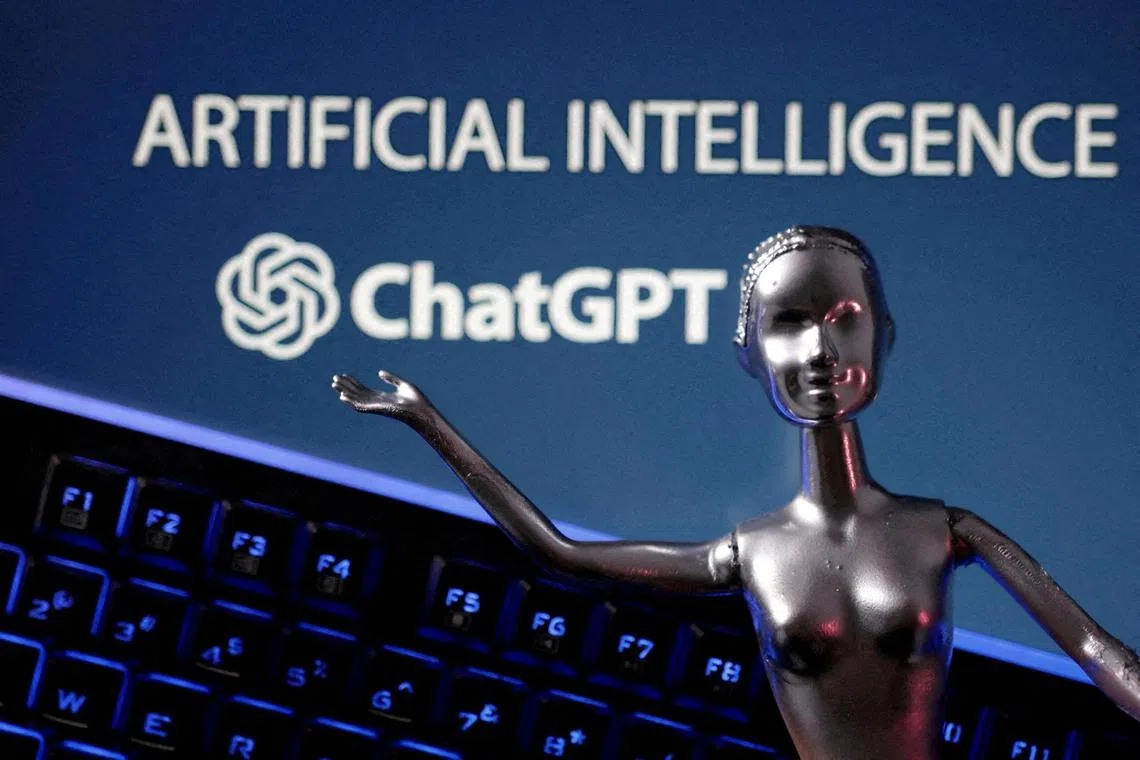German tabloid Bild replacing range of editorial jobs with AI
Sign up now: Get ST's newsletters delivered to your inbox

Chief executive Mathias Döpfner said AI tools like ChatGPT could “make independent journalism better than it ever was, or replace it”.
PHOTO: REUTERS
Germany’s Bild tabloid is planning to replace a range of editorial jobs with artificial intelligence, according to a report in The Guardian.
It is part of a €100 million (S$147 million) cost-cutting programme, the paper told its staff on Monday.
Bild is also reorganising its regional newspaper business, and hundreds of redundancies are expected.
It is the biggest-selling newspaper in Europe and is known for its sensationalist and highly politicised reporting.
In an e-mail to staff, the paper’s owner, publisher Axel Springer, said roles such as editors and print production staff “will no longer exist as they do today”.
“Current structural changes are leading to job cuts. We are moving away from products, projects and ways of doing things which will never again be profitable,” the e-mail said.
In February, chief executive Mathias Döpfner said the publisher was to be a “purely digital media company”.
He said AI tools like ChatGPT could “make independent journalism better than it ever was, or replace it”.
AI would be better at aggregating information, and only publishers who create “the best original content”, such as investigative journalism and original commentary, would survive, Mr Döpfner said.
Bild has no figures for the number of jobs that AI might replace.
But on Monday, the paper said it will cut about 200 jobs and close about one-third of its regional editions across the country.
Bild said it would aim to avoid forced redundancies where possible.
Sales of Bild have fallen from 4.5 million about 20 years ago to just over a million in 2022, according to The Guardian.
The latest job cut announcement is the latest in a series of changes at the tabloid in a bid to turn around its fortunes and bounce back from a string of scandals.
In October 2021, Bild was forced to fire its former editor Julian Reichelt after months of defending his sexual relationships with women in the workplace.
Earlier in 2023, Mr Döpfner had to apologise after leaked texts revealed he had tried to use Bild to influence Germany’s last election.
Axel Springer joins a list of other publishers looking at using artificial intelligence.
BuzzFeed announced this year that it aims to use AI to “enhance” content and online quizzes.
UK publications such as The Daily Mirror are also exploring the use of artificial intelligence.
AI tools such as ChatGPT can generate highly sophisticated text from simple prompts. They can answer questions, tell stories, produce essays and even write code.
But concern has grown over accuracy and credibility.
Tech website Cnet is one of several adopters of AI to generate content. Its articles are then scanned for accuracy by human editors. But in January, Cnet conceded that this system had limitations following reports that more than half of the AI output had to be corrected.
In April, the publishers of German magazine Die Aktuelle sacked its editor and apologised to the family of Michael Schumacher after it ran an “interview” with the Formula One legend that had been generated entirely by AI.
Schumacher has not been seen in public since December 2013 when he suffered a serious brain injury in a skiing accident in the French Alps. The 54-year-old’s family has launched legal action against the magazine’s publishers.


